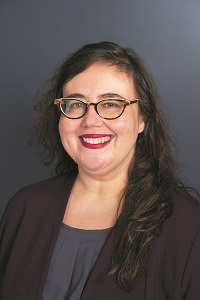Lessons from COVID-19 | Editorial
The coronavirus is shining a harsh light on the gaps in our social safety net, how essential libraries are as they try to fill more and more of those gaps, and the limitations of the library as an overstretched catchall solution to inequity.
Libraries can’t be our only safety net
 As I write this, hundreds of U.S. colleges (and counting) have shut down in-person classes and gone remote to prevent the spread of COVID-19. Hundreds of public libraries have closed entirely. Online, I called for more to do so (“Close Your Library”); there wasn’t time to wait the two weeks for the print version of this editorial to land on librarians’ desks.
As I write this, hundreds of U.S. colleges (and counting) have shut down in-person classes and gone remote to prevent the spread of COVID-19. Hundreds of public libraries have closed entirely. Online, I called for more to do so (“Close Your Library”); there wasn’t time to wait the two weeks for the print version of this editorial to land on librarians’ desks.
I can’t know what’s happened in those weeks. I hope social distancing measures were effective and people now think we were overreacting. In a pandemic, that’s what success looks like. I fear our situation will look more like Italy’s.
But one thing I know will still be true: The coronavirus is shining a harsh light on the gaps in our social safety net, how essential libraries are as they try to fill more and more of those gaps, and the limitations of the library as an overstretched catchall solution to inequity.
The digital divide is one obvious instance. As schools from K–12 through higher ed scramble to turn in-person classes into remote learning, the approximately 31 percent of households—about 100 million people—that don’t have broadband at home are in danger of being left behind. Libraries wanted to stay open to provide that access, but in the process they would have endangered their most vulnerable users as well as their staff. “The same populations that are hurt by us closing are at greatest risk from us remaining open,” Brooklyn librarian Katya Schapiro explained.
Educational support for kids is another core service that public libraries provide for all families, but especially to low-income parents, who may not be able to afford private help. With kids out of school and parents struggling to keep them entertained and informed, the need to support those who still have to work was another barrier to closing libraries.
Food may seem like a less obvious library service. But public libraries routinely serve as free breakfast and lunch sites over summer and other school holidays. With schools canceling, many cities and towns turned to their libraries to step up. That may not have prevented them from closing to the public, but it certainly required staff to expose themselves to risk.
For homeless patrons, crucial service is even more basic—simply a safe place to be, with access to the hygenic facilities even more necessary than usual to protect against catching, and spreading, the virus.
What all these things have in common is that the library, while a critical ameliorative for individuals, can’t fix many significant, societal problems. In some ways, the Band-Aid effect of the library may even sap the political will to correct these more insidious systemic failings. If people can use what they need at the library, after all, is it really so bad if they don’t have it themselves?
The answer, the coronavirus has shown us, is yes. Shared resources are great, but they fundamentally rely on the fact that not everyone needs them at once, and that the mechanism of access is safe for everyone involved. When either of those break down—and in this case, both have—we see both how essential and how insufficient library services are. We need homes and living wages and internet access for everyone, in the same way that earlier generations prioritized making sure everyone had electricity, telephones, and running water.
As the crisis subsides, the urge to get back to a new normal will be strong, and the need to play catchup formidable. But we must make sure as a field to etch into our future planning the lessons of COVID-19.
This won’t only involve instituting strong infectious disease prevention protocols, flexible remote work infrastructure, and robust succession plans, though those are vital. It will mean making sure that the library has a place at the table in the larger conversation about how your town, county, university, etc. should respond to an emergency, rather than being an afterthought, or assumed to be available to pick up the slack for any and all other arms of government. And we must start seeing it as part of the core library mission, not just to stick our collective finger in the dyke where problems erode our social safety, but to advocate to fix them before the next crisis.

RELATED
ALREADY A SUBSCRIBER? LOG IN
We are currently offering this content for free. Sign up now to activate your personal profile, where you can save articles for future viewing









Add Comment :-
Comment Policy:
Comment should not be empty !!!